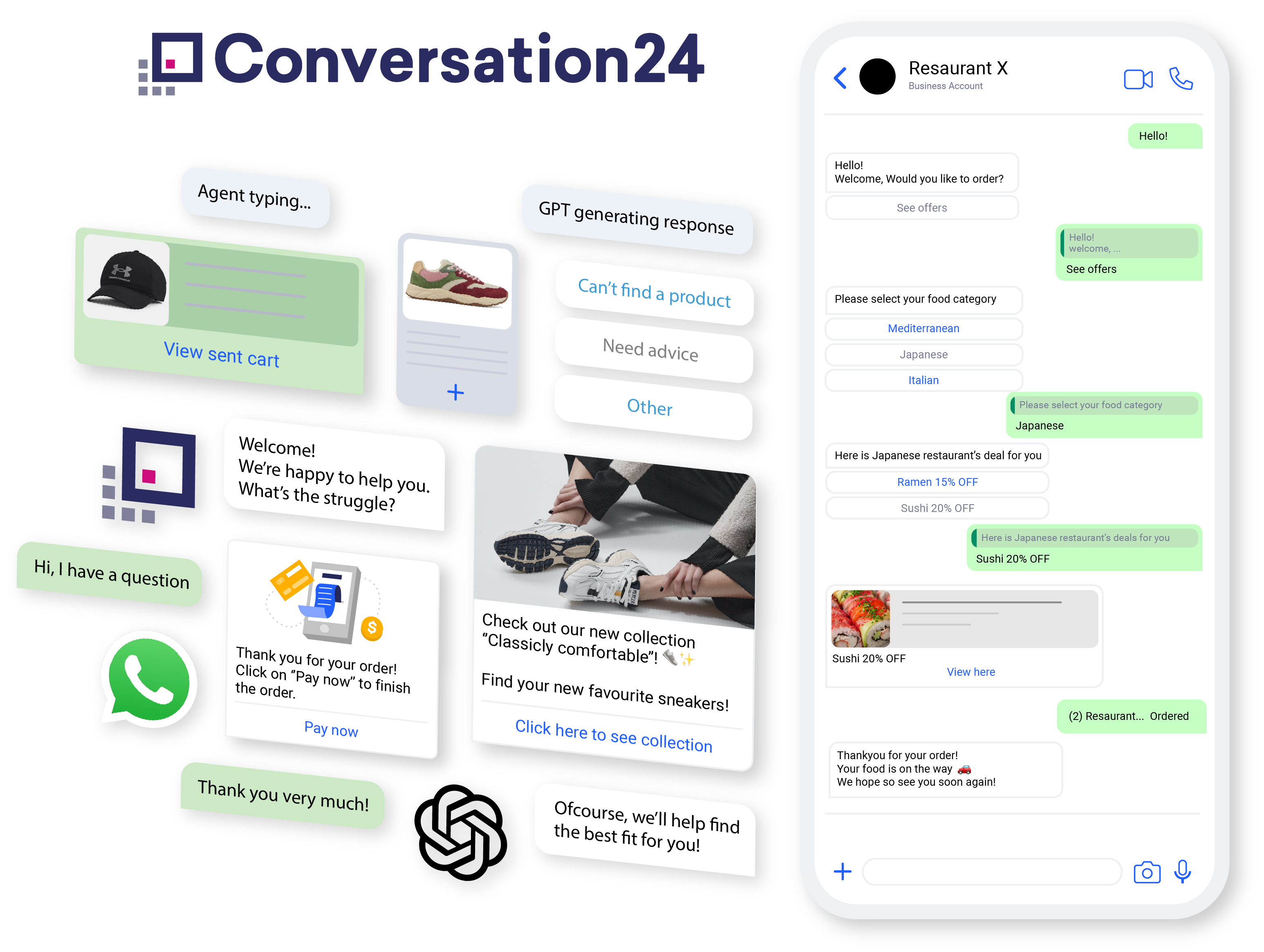Technology had a significant impact on the traditional way of doing marketing. There were some highs and lows, but marketers learned how to put it into fair use over the last years. If technology felt like an enemy initially, now it is one of the marketers’ best friends. The one that allows them to reach their customers on every possible channel.
However, it is not only about being available on multiple platforms. There must be a good strategy behind it. And this is where omnichannel marketing comes in!
Are you curious about what omnichannel marketing is? And do you want to learn more about how it can help your business improve customer experience? Read on to find out!
Omnichannel Marketing – The Origin!
Let’s start with a little history.
In the beginning, traditional marketing focused almost exclusively on the brand. The marketing team had to build strategies to transmit the message of the brand through every product. When marketers began to work on a new campaign, the aim was to set up brand awareness.
Their second goal was to settle the customer journey cycle perfectly around four aspects: discover, buy, use, and engage.
However, around the mid-2000s, some companies lost sales to big retailers such as Amazon and Walmart. Those retailers settled around with higher advertising budgets and more resources than their competitors.
And why were they so successful in the first place? Because they built their strategy around customer-centric marketing. Hence the birth of omnichannel marketing.
Brands opened their eyes to this new way of catching up with consumers. They understood that now it was the product that had to adapt itself to customers’ needs. By changing the strategy, marketers developed a better understanding of how they were supposed to talk to consumers and where they could reach them.
In addition to that, we can’t ignore that people were not only shopping more online, but they were also dedicating more time to social media. And a good marketing strategy is ready to tackle consumers there too!
What Is Omnichannel Marketing?
The main goal of omnichannel marketing is to deliver a flawless and unique experience to customers through online and offline channels. Besides that, it focuses on how customers transition between those channels through their purchase journey. With omnichannel marketing, a marketer reaches a consolidated approach in their strategy, design, and customer experience.
For a better understanding, let’s consider all marketing channels first.
Your eCommerce website and its social media pages, such as Instagram and Facebook, are online marketing channels. Printed advertisements like the ones on the bus stops are considered an offline marketing channel.
In omnichannel marketing, those channels exist together in a holistic approach. Every possible touchpoint a customer may have with your business must be unified. In this way, customers feel more at ease about reaching your company at different levels because they are sure to have the best experience independently of their choices of channels.
Thus, it is essential to make sure that the entire business is on the same page to transmit a unified message. All of the company’s departments must be aware of the customer journey through the omnichannel marketing strategy.
But Isn’t This Called Multichannel Marketing?
The terms may be similar, but their commerce approaches are different. Multichannel also means being in multiple channels. However, each channel has its strategy, and they don’t necessarily intersect.
Even though each channel carries the message of the brand, the experience varies. Let’s say you have a customer that always reaches you on live chat when they need help. If today they decide to give Facebook Messenger a try for the same purposes, they won’t have the same experience.
By adopting an omnichannel marketing strategy, you work out a way to strengthen the bonds with customers. In other words, you define a single user experience on multiple marketing channels. Whichever is your customer’s choice, they will be sure to have the same excellence in customer service through all the channels!
Find out more about the differences between multichannel and omnichannel here.
What Are the Benefits of Omnichannel Marketing?
The most crucial benefit of omnichannel marketing is the achievement of customer satisfaction. By delivering seamless information and experiences, businesses can provide an exceptional customer experience.
Alvaria‘s survey pointed out that businesses that adopt omnichannel strategies achieve 91% greater year-over-year customer retention rates than those that don’t.
Satisfied customers can bring a significant impact on revenue. After all, satisfaction leads to customer retention and loyalty.
And it doesn’t stop there.
Nowadays, many consumers start their purchase journey on one device and complete the transaction on another. For example, a consumer can browse the boot’s section of an e-shop using their computer during their work break. Later, while they wait for the train on their way home, they can reaccess the e-shop and place the order using their telephone.
The same shopper might be captivated by an advertisement on the streets. They will be amazed to see that they can quickly scan a QR code to purchase that one item they saw in the ad. That’s the seamless experience we are talking about!
Furthermore, due to the pandemic, a growing number of consumers are picking up a click and collection option. Instead of waiting for standard delivery, they can just place the order and go pick it up and a convenient time.
Last, but not least – it is cost-effective marketing. The data collected from those interactions shows what is engaging customers. Businesses can use this piece of information to improve their strategies towards customers.
Are you convinced that omnichannel marketing is the best solution for your business? We can lead you through this journey!


